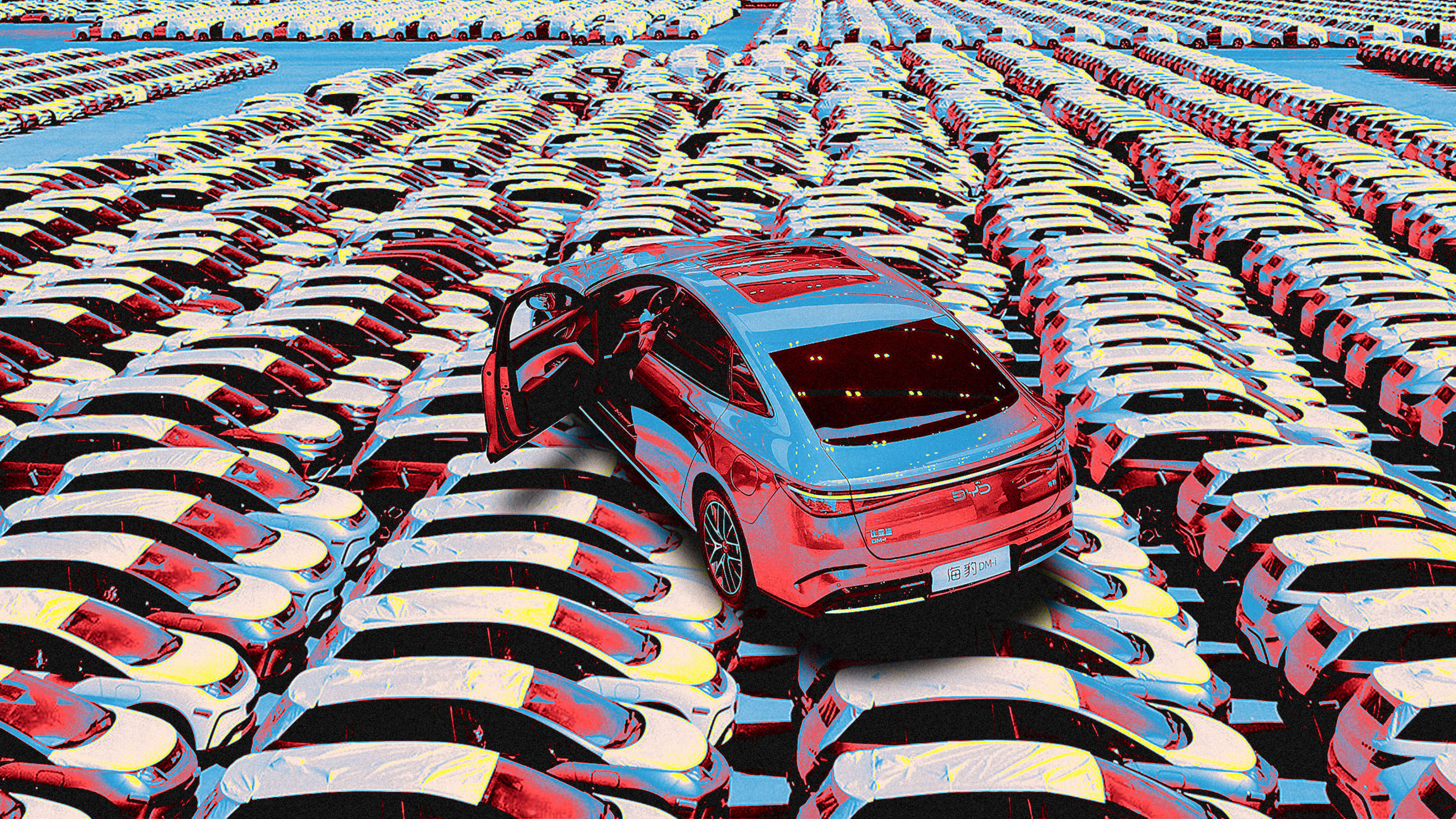Branded is a weekly column devoted to the intersection of marketing, business, design, and culture.
The wild ride that is Elon Musk’s Tesla seems to have hit a rough patch: This week, the electric-vehicle giant announced slightly disappointing revenue for the year and warned that 2024 volume growth “may be notably lower” than previously expected. There was no word on ending significant discounts it introduced in the latter part of 2023, partly due to a more competitive market.
That competition includes one of the world’s hottest carmakers, a brand that most U.S. consumers haven’t even heard of, for the understandable reason that its vehicles aren’t (yet) available to them. China-based BYD—which stands for Build Your Dreams—recently announced that it sold more than 3 million vehicles last year, 1.6 million EVs and 1.4 million hybrids. Tesla, long the global EV leader, reported 1.8 million total sales for the year. And in the fourth quarter, BYD, for the first time, put Tesla in its rearview mirror in pure electric-model sales, moving about 525,000 EVs compared to Tesla’s 485,000 deliveries.
It’s been a remarkable rise, and it may be just starting. About 90% of BVD’s sales still come from China, but it is making inroads in Europe and elsewhere, bringing along lessons and strategies honed on its fiercely competitive home turf, where it has become the clear market leader.
Founded in Shenzhen in the mid-1990s, BYD was originally a battery company before founder Wang Chuanfu acquired a state-owned automaker in 2003, eventually concluding that electric vehicles represented its best opportunity to become a truly global business. Vertically integrated (not only innovating new batteries but owning access to resources like lithium mines) and with a reputation for manufacturing efficiency, BYD has primarily competed on affordability: Its cheapest vehicle is around $12,000 in China (compared to about $39,000 for the cheapest current Tesla).
Early on, BYD struggled with both quality and aesthetics; an early model was basically rejected by dealers as being too unappealing. A dozen years ago, Tesla chief Elon Musk literally laughed off the prospect of BYD as a serious competitor, dismissing their vehicles as subpar. “Have you seen their car?” he asked at the time. “I don’t think it’s particularly attractive, the technology is not very strong.”
Others saw potential: Notably, a subsidiary of Warren Buffet’s Berkshire Hathaway invested $230 million in a 10% stake in the company in 2008. In 2016, BYD brought in German designer Wolfgang Egger, whose background includes Alfa Romeo and Audi, as its design head. Since then, its styling has evolved into more consumer-friendly looks (with less emphasis on oddball design quirks like “guitar” strings embedded in doors) and greater variety, offering two dozen models to appeal to many tastes. Also in 2016, the company signed megastar Leonardo DiCaprio as a brand ambassador, burnishing its cred. In 2022, it launched in Europe, with aggressive pricing and incentives.
Brands like BMW and Mercedes (and Tesla) still carry more status and prestige both in China and Western markets; Porsche is the latest to announce a luxury EV. But Chinese-made cars’ reputation has been steadily improving. “These are very advanced vehicles,” an auto expert at global consultant AlixPartners told NPR. “They are not quite up to the quality standards that the U.S. and European vehicles are. But they’ve come a long way, and the difference is now pretty negligible.” Particularly for the price: BYD’s current models aren’t head-snapping sports cars, but they’re solid and practical. It’s an approach that worked for Toyota and other Japanese carmakers when they went global, and later for Korean brands like Hyundai and Kia.
BYD’s route to the U.S. market will be more complicated. Chinese automakers rose and thrived in the burgeoning EV market, partly thanks to government subsidies and tax breaks, following what The Economist described as the “ransacking of technology from joint ventures with Western carmakers and Western and South Korean battery makers.” But that’s not the whole story. China is the world’s biggest market for EVs—about one in three cars sold there is a “new energy vehicle,” either electric or hybrid—and it’s proven a fiercely competitive one. BYD has a slew of Chinese EV-centric rivals, including MG, Geely, and NIO, and the battle for market share has no doubt helped all the (surviving) competitors improve and innovate.
Nevertheless, the European Commission is investigating whether BYD and other Chinese brands are subsidized in ways that violate trade rules. And it is currently thwarted from entering the U.S. consumer market by high tariffs and other government policies that aren’t likely to change anytime soon.
Still, BYD is keeping its foot on the accelerator, selling in Australia, Latin America, and Asia; it offers five models in Europe with more to come in 2024, and has announced plans for a new production facility in Hungary. Next, the company says it will roll out a new brand, Yangwang, explicitly targeting the luxury market, including a $150,000 Lamborghini-like model.
Meanwhile, Tesla is reportedly aiming to introduce a model in the $25,000 range in 2025, which sounds like an attempt to get into BYD’s lane. Certainly Musk isn’t laughing at Chinese automakers these days: “I think the Chinese car companies are extremely competitive,” he said not long ago. “By far, our toughest competition is in China.”
Recognize your brand’s excellence by applying to this year’s Brands That Matter Awards before the final deadline, June 7.
Sign up for Brands That Matter notifications here.
